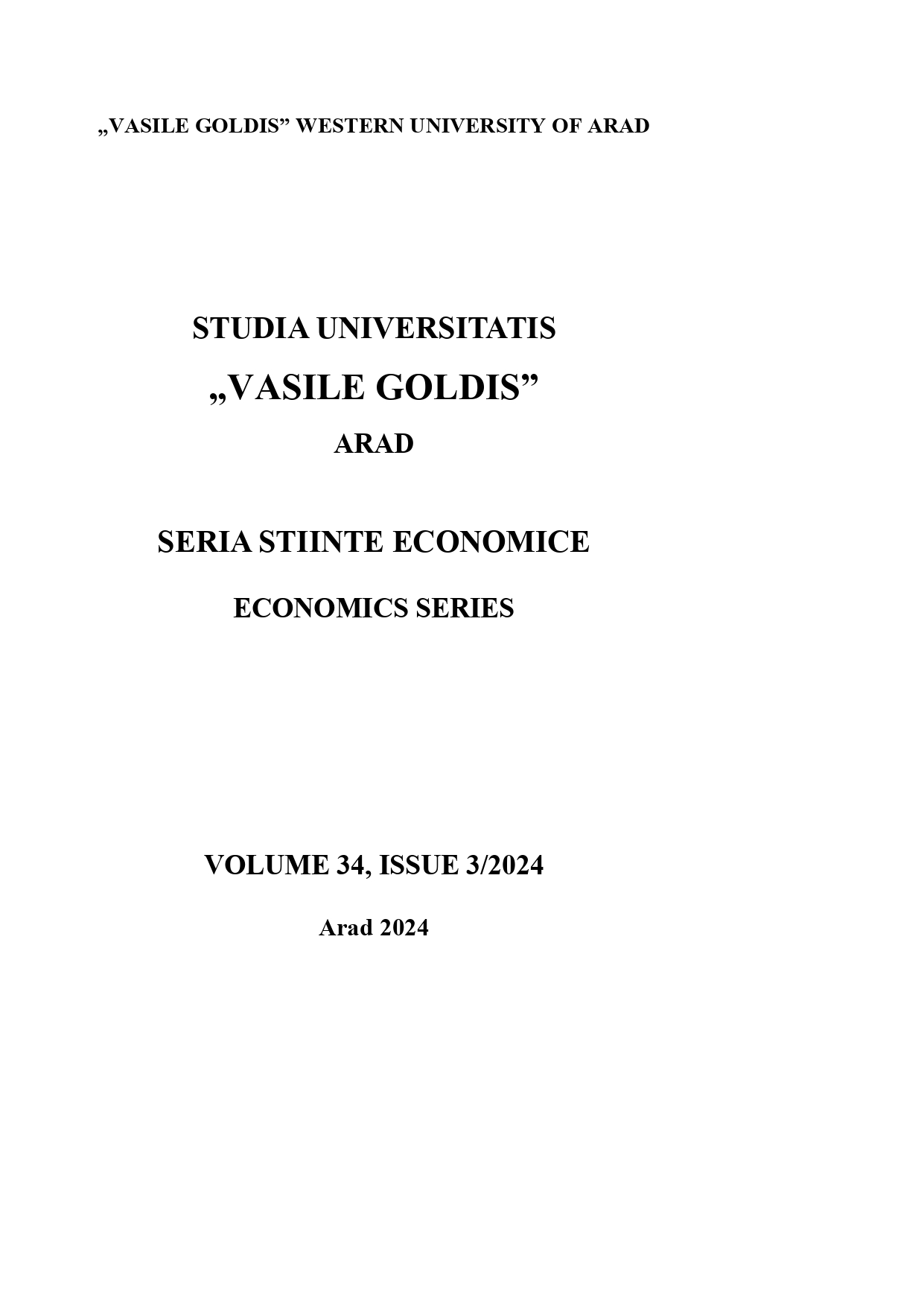ECONOMIC COMPLEXITY AS A DETERMINANT OF GREEN DEVELOPMENT IN THE CENTRAL AND EASTERN EUROPEAN (CEE) COUNTRIES
ECONOMIC COMPLEXITY AS A DETERMINANT OF GREEN DEVELOPMENT IN THE CENTRAL AND EASTERN EUROPEAN (CEE) COUNTRIES
Author(s): Olimpia Neagu, Madalin Ioan NeaguSubject(s): Business Economy / Management, Energy and Environmental Studies
Published by: Editura Universităţii Vasile Goldiş
Keywords: green growth; economic complexity; globalization; human capital; renewable energy; panel data;
Summary/Abstract: The paper analyses the determinants of green development in the Central and Eastern European (CEE) countries pointing out the influence of the sophistication of productive structure and exported goods (economic complexity). The study uses OECD data regarding green development, World Bank Indicators, World Penn Table Data, and MIT Harvard data covering the period of 1996 to 2020, in a heterogeneous panel approach. Fully Modified Ordinary Least Squares (FMOLS) and Dynamic Ordinary Least Squares (DOLS) models are estimated in order to express the influence on green development of the economic complexity index, KOF globalization index, renewable energy consumption, human capital index, and a constructed institutional quality index (computed by using the Principal Component Analysis based on data from World Governance Indicators). All considered variables have a validated statistical influence on green growth in both models. The Dumitrescu-Hurlin causality test revealed a bidirectional causal relationship between institutional quality and green growth and unidirectional ones from economic complexity, human capital and renewable energy to green development and from green development to globalization. Policy implications are also provided.
Journal: Studia Universitatis Vasile Goldiş, Arad - Seria Ştiinţe Economice
- Issue Year: 34/2024
- Issue No: 3
- Page Range: 108-132
- Page Count: 25
- Language: English

